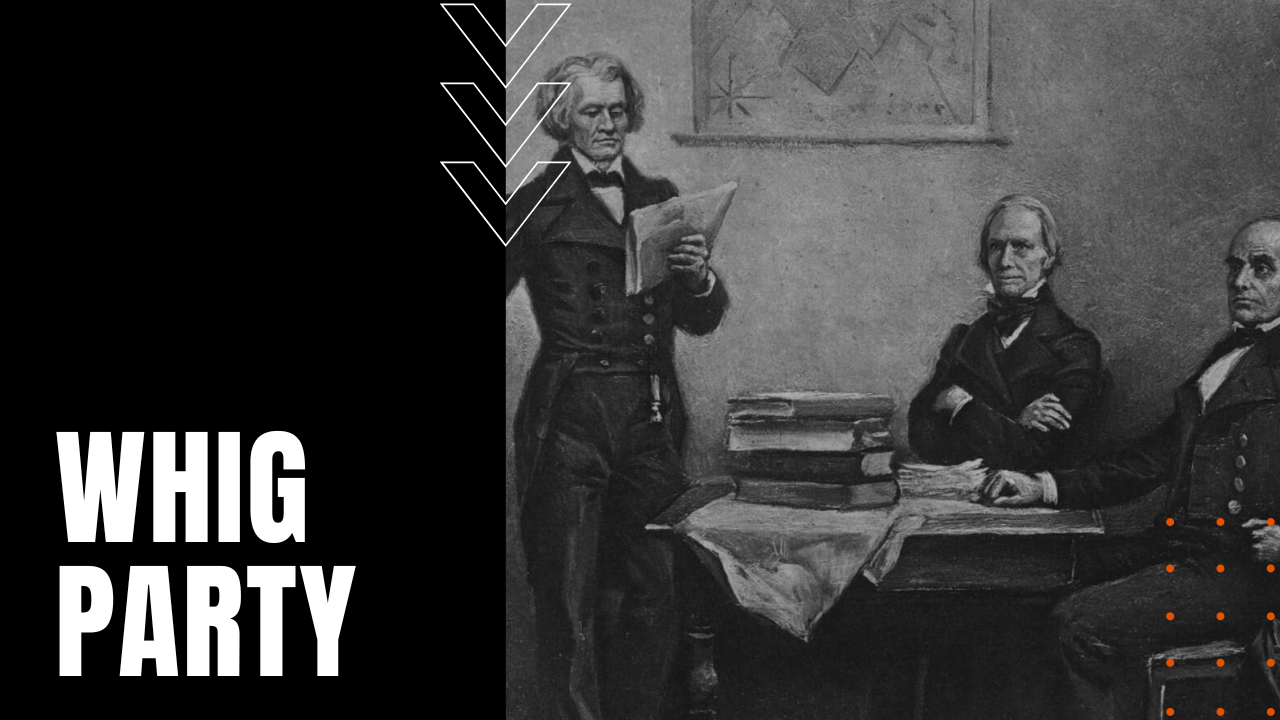Whig Party: Political Beliefs, Members, and Collapse

Once one of two most prominent political parties in the United States, the Whig party rose to power in 1834 in objection to President Andrew Jackson’s populist ideals and outright usurpation of congressional powers, after “King Andrew the First,” as the president became known to the Whigs, refused to fund the second National Bank.
What Was the Whig Party?
While the Jacksonian Democrats attempted to pigeonhole the Whigs as wealthy Northern elites bent on sidestepping the will of the people, Whig party members comprised a coalition of northern and southern politicians, who railed against Jackson’s forced relocation of Native Americans. At the same time, Whigs dodged as best they could the escalating issue of slavery within the ever-expanding United States.
Whig Party Politicians and Duration
Some of the party’s most influential pre-Civil War leaders included Henry Clay, Daniel Webster, William Seward, John Quincy Adams and one-term Illinois congressman Abraham Lincoln.
During its 20-year existence, the Whig Party remained staunchly critical of westward expansion under the banner of manifest destiny, sending William Henry Harrison to the White House after the presidential election of 1840, who subsequently died of pneumonia just 32 days after taking office.
After Whig presidential candidate Henry Clay lost to Democrat James Polk in the presidential election of 1844, Whig candidate and Mexican-American war hero Zachary Taylor again took the White House in the election of 1848, while his death two years later from a gastro-intestinal illness did much to derail the forward momentum of the party.
When the divisive issue of slavery came to a head in the 1850s, including the wildly unpopular Compromise of 1850, the Fugitive Slave Act and the Kansas-Nebraska Act of 1854, the Whig party collapsed just as abruptly as its meteoric rise to power.
Whig Party Collapses
With northern and southern legislators hopelessly deadlocked over the issue of slavery, prominent Whigs such as Thaddeus Stevens, William Seward and Abraham Lincoln switched to the newly-formed Republican party, while conservative anti-immigrant, nativist proponents within the failing Whig party followed Millard Fillmore to the Know Nothing party.
This lead William Seward to deliver the Whig’s eulogy in 1855, when he stated,
“Let, then, the Whig party pass. It committed a grievous fault, and grievously hath it answered it. Let it march out of the field, therefore, with all the honors,”
William Seward
\making the Whig party, a brief yet bygone era in early American politics.
